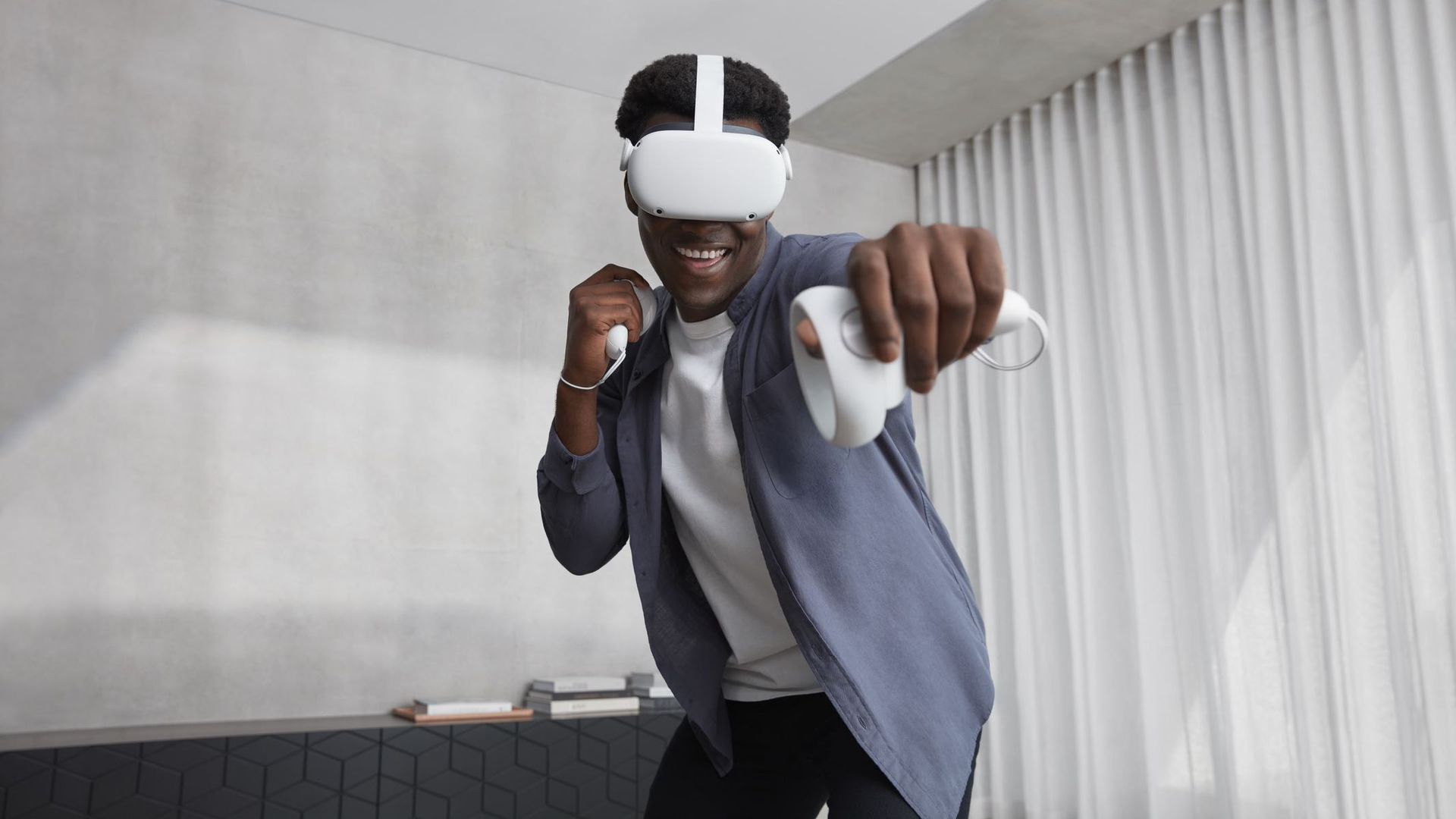Facebook updates Quest VR headset, will test sensors for AR glasses
Add Axios as your preferred source to
see more of our stories on Google.

Photo: Facebook
Facebook on Wednesday introduced a new version of its Oculus Quest and took the next step in a longer-term push toward augmented reality glasses.
Why it matters: Facebook has made big bets on virtual reality and augmented reality as key to its future and it is moving forward despite concerns from regulators and privacy advocates.
Oculus Quest 2
The new standalone VR headset, introduced at Wednesday's Facebook Connect conference, is lighter than its predecessor, features a significantly improved display and faster processor and starts at $299, less than the original Quest was priced when it debuted last year. It features:
- 50% more pixels than the original model, at 1832-pixels-by-1920-pixels per eye
- An upgrade to Qualcomm's XR2 processor
"This is just about making it more accessible to bring more people into VR," Facebook hardware chief Andrew Bosworth told Axios.
Pre-orders are set to begin today, with the headsets available beginning Oct. 13.
Facebook is also showing a demo of how a VR headset could work in an office context, using cameras so that workers immersed in VR can still see their keyboard, coffee cup, or when a co-worker is coming nearby.
Augmented reality
Consumer glasses that project images in front of you are probably still years off, but Facebook's moves Wednesday are designed to prepare both technologically and ethically for the world they will bring. (Facebook had said last year it was working on AR glasses.)
The company Wednesday announced Project Aria, which will put researchers in the field with a device that will help Facebook understand how to build the software and hardware necessary for AR glasses.
- The devices won't have a display of any kind, but will have many of the sensors that Facebook expects to eventually be on such devices, including various cameras and microphones as well as GPS data.
Facebook is also taking steps to address privacy issues around its AR efforts, particularly since it's capturing so much personal data.
- Only Facebook employees and contractors will use the prototypes.
- The devices won't be made available for sale or released publicly.
- They will wear clothing that identifies them and the gear they are using.
- Researchers won't have personal access to the data and it will be quarantined from all Facebook employees for three days, allowing time for the company to delete any data that people request not be saved.
- Sensitive information like faces and license plates will be blurred.
"It’s a very small scale, but the time is now to start having a pretty public conversation around how augmented reality is going to work," Bosworth said.
The company also released a series of four ethical principles designed to govern Facebook's next-generation hardware work, including its AR effort.
- The goals include things like being clear about what its products do, providing user control, and considering the impact on those using a product as well as those around them.
- Facebook said it will try to meet the needs of its business and the community, but in cases of conflict will err on the side of the community.
Yes, but: Expect a lot of skepticism around Facebook's pledge and concerns over the type of work researchers are doing, as well as what it would mean to equip potentially millions of people with such sensors.
